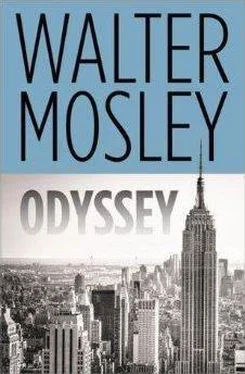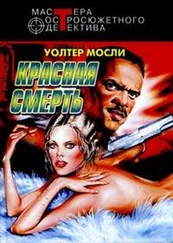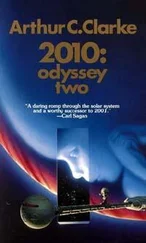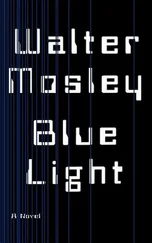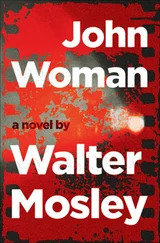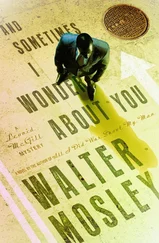This speech ended in silence. The people he’d hired had mildly befuddled looks on their faces.
“This is crazy,” Lola said.
“It’s like I went to sleep in America,” Sovereign agreed, “and I woke up in the world.”
“Now let me get this straight,” LeAnne Moore said. “You’ve been here more than twenty years, smiling at the white boss and hiring so that all the black people would have an advantage.”
“Not just blacks,” Sovereign said. “So-called Hispanics, one Native American, and some Asians too. Mostly it was blacks, though, mostly so.”
LeAnne was tall for a woman, five-ten, and round. She had the happy nature of a big person — what Sovereign thought of as natural humor. But she wasn’t smiling in that room, on that afternoon.
“From the first day you were here?” she asked.
“I studied political theory in college,” he explained, “Marx and Bakunin, the socialists and revolutionaries. It came to me that conscious revolution in the new world was impossible because it was idealistic. A workable revolution could be designed, but the people doing the work shouldn’t have to shoulder the expectations. Everyday working people have to raise children and pay the bills; they don’t have the time to worry about the reorganization of society. The professors and students lived in an ether removed from the exigencies of the everyday.
“That’s when I decided to go into human resources — I thought that I might make a difference without slogans and false optimism.”
“You decided that in college?” Warren Chisel said, as mild astonishment spread across his face.
The question nipped at Sovereign like an unexpected animal bite. What had he been thinking all those years? Could it be true that he felt he was guiding the future of an entire international corporation inside a moment of self-perceived political clarity?
The conversation went on for nearly two hours. Shelly Monteri came back and was surprised to find the impromptu meeting in progress. Sovereign sent her away, asking her to close the door and not to allow any interruption.
His hires asked questions and he answered as honestly as he could. In his mind he was questioning himself, feeling both a failure and quite satisfied.
“So what do you want us to do now, Mr. James?” Darius asked what turned out to be the last query of the unique meeting.
“Do?” the HR manager asked himself. “I don’t know. It seemed to me that I should tell you people the truth. I don’t expect to be here much longer. Either I’ll get fired or put in jail or something. For twenty-one years I’ve been playing this game. Maybe it doesn’t mean anything but... but I just thought you should know.”
Sovereign walked home. He didn’t want to be underground in the subway, in the backseat of a taxi, or on the high platform of a crowded bus. The sky was overcast, but he didn’t notice, because his eyes were studying the sidewalk before him. He was thinking about the ramifications of the spur-of-the-moment meeting with the unofficial Black Workers’ Union of Techno-Sym. The meeting was like a tiny ripple in a great tumultuous lake, he thought. The influences might be far-reaching but the origin would certainly be lost.
There was a new doorman at the marble kiosk of his building — brawny and bronze. He was young and confident in his bearing and blue jacket-uniform. His only visible flaw was the smallness of his eyes.
“Mr. James?” the greeter-guard asked, squinting.
“Yes?”
“I’m new today,” he said. “Name is Jolly.”
“Jolly?”
The big, beautiful man shrugged his navy-blue shoulders and then turned his puckered line of sight to a place behind Sovereign, to the chair .
The chair was a pink wooden kitchen seat that Myron Hayes had put there for the times when he needed to rest before going upstairs to his apartment. Myron had cancer at the time and was going through treatments, radiation and chemical, to battle the disease. Every day he took a walk around the building but was often too tired even to stand waiting for the elevator just after the constitutional. So he had his neighbor, Nelson Briggs, bring the pink chair down for him to sit in.
Myron survived the tumor but was killed a year later by a hit-and-run driver three blocks from their building. All that was left now was the hot-colored chair sitting alone against a broad terra-cotta-and-emerald wall.
The small man sitting there had black hair and milky pale skin. With Jolly and Sovereign staring at him he rose and said, “Mr. James?”
“Yes?”
“Hi,” he said, taking two steps and holding out a hand. “I’m Monte Selfridge, a friend of your brother, Drum-Eddie.”
Taking the proffered hand, Sovereign asked, “Are you a bank robber, Mr. Selfridge?”
“No, sir. I’m in the international message trade.”
“You work for AT&T?”
The small man was in his late thirties, at most forty. He laughed, showing a row of healthy but uneven teeth.
“No, sir,” he said again. “There are a lot of people all over the world who need their thoughts known without any kind of trail, electronic or ink. When the need gets great enough, people like me are employed to move the message from one place to the other.”
“And Eddie has a message for me that he couldn’t pass on the phone?”
“Can we go upstairs, sir?” Monte asked. “I don’t usually transact my business in open spaces that aren’t anonymous to the receiver.”
“That’s me? I’m the receiver?”
Monte Selfridge smiled.
“So,” Sovereign James asked his brother’s representative once they had both settled in his living room. “I’m supposed to receive a message from Drum now?”
“Actually this is more a personal favor than a proper transaction,” Monte said, looking a bit uncomfortable. “You see, your brother did me a big favor twelve years back and he’s asked me to reciprocate.”
“You use a lot of big words, Mr. Selfridge.”
“My profession crosses many languages and requires a broad vocabulary,” he admitted. “I never write anything down, and so words and their usage have a tendency to stick.”
“What kind of favor?”
“First Eddie heard that you were blind and then that you were being prosecuted for assault. He asked you if you needed help and you said no, but he wasn’t sure about that. So I’m here to talk to you about the situation.”
“As far as I know, charges have not been lodged against me.”
“Forty-eight hours from now they will be.”
“How do you know this?”
“I know a lot of people in New York, Mr. James. That’s why Eddie asked me to come see you.”
Sovereign turned his head to look out the window. There was a jet going past, south of Manhattan island, above the false horizon line of skyscrapers. He imagined himself sitting next to a window in that airliner, looking down on the hundreds of thousands of anonymous people hidden inside the buildings, and so small they were invisible walking down the streets. He and Monte Selfridge were a part of that nameless, imperceptible mob. This thought provided relief.
“I was blind,” he said easily, “and then I could see — but only for a moment. It was like a sudden shaft of light inside a shuttered room. In that brief frame of vision there was a young woman’s face. She turned out not to be the ideal woman I’d always wanted, but the window, that brief instant in time, would not leave me.”
“You loved her?”
“I do. And she in turn loves a series of distractions and tragedies. Through her I feel... I don’t know — strong. It’s stupid, really, meaningless. But that doesn’t matter.
“She,” Sovereign continued, “she brought a man in here and he wound up attacking me. She hollered in my defense. My sight returned again, this time permanently, and I beat him nearly to death.”
Читать дальше
